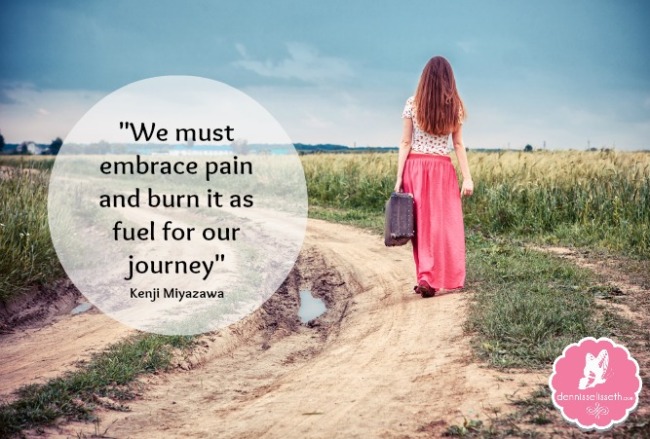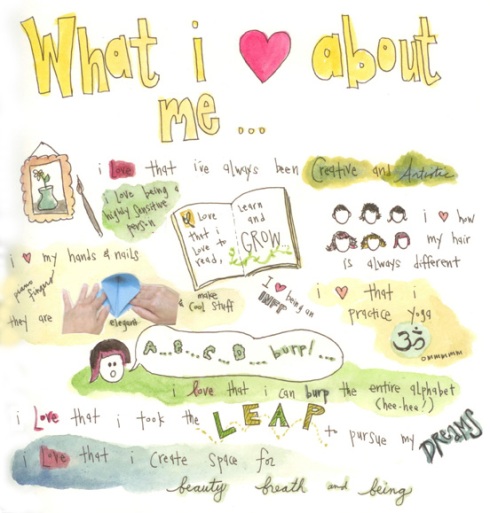I’ve learned about being a HSP myself for about 2 years now. Knowing this and learning about myself helped me a lot. Albeit with my clinics, I had to rearrange & process this information in the brevity where I had to go on a straight 32 hours hospital duty. But the stress and the pressure (they had their toll) molded me to acclimatize and I survived it.
I had enough or less time to sleep. When I wake up in the morning, I just freshen up in a hurry to leave to the hospital. No exercise, let alone meditation or had my breakfast. I’m sure most of us live this way. World is fast and furious, so we need to catch up with its pace. Moping around when you’re overwhelmed doesn’t help, in fact it exacerbates your life. The following are the strategies I used to help myself.
Emotional Regulation & Mindfulness
Psychologist Elaine N. Aron notes that “Emotional regulation” is a “fancy psychological term that refers to any method that you might try, consciously or not, to change the otherwise spontaneous flow of your emotions.”
“By this definition, you might want to increase, prolong, or decrease a feeling. Because the human brain is designed to do this quite well, and the HSP’s [highly sensitive person] brain even more so, you already know quite a bit about emotional regulation, just by having lived awhile. But it never hurts to make it more conscious.”
Are you controlled by your emotions? Been there. Especially for women, our hormones and mood swings go together. Now at this moment, think about – what are you feeling? Now this is where mindfulness insinuates. Try to watch your thoughts instead of feeling them, whether your emotions are positive or negative. It takes time to do this, to get control of your emotions but it is eventually possible.
Everyday, recognise your emotions and remember to think over to act on them or not. Tame your mind. Yes for some emotions it is better to share with our loved ones or write it down or ponder through them. Once you are done, it is the time to distract. Dwelling on a negative emotion doesn’t do good. So do something you enjoy like watch a movie, listen to music, write a journal, read a book, socialize etc. Whatever it is, try to regulate your emotions sensibly. Read more about meditation and mindfulness.
Jonathan Kaplan PhD notes “Mindfulness can help us navigate through troubled emotional times. We develop an ability to watch and observe our feelings without getting caught up in them.”
“We can identify the external cues associated with a particular emotion as well as our internal experience of it. As we become aware of the thoughts, actions, and physical feelings associated with an emotion, we also cultivate our ability to get some distance from it.”
Healthy life style
If you’re living in a lifestyle where your work is your life partner, I say start by doing a 10 min meditation or prayer. Eat healthy, learn about food and nutrition to nourish in a stressful life. If you have time, engage in any kind of activity like running, jogging, yoga or even dance. Get exercise even at your work place by moving around or try some yoga in a sitting position(check online). Most importantly sleep at least 6-8 hours. I have gained 20 pounds in the past few months because sleep deprivation regulates your hormones (like ghrelin your appetite stimulating hormone increases) and results in overeating. Do not sacrifice your snooze time for a stupid movie or a drinking night out because you need to learn and understand what is important to keep yourself sane and healthy. I am sure you will find enough time to get together with your loved ones, so manage time accordingly.
Neuroplasticity & Habituate
Your brain is plastic. Yes it has the incredible ability to mold itself throughout your life. Regardless of age, your brain has the ability to make new neurons and construct new neural pathways throughout your life. When you engage in new experiences or think in novel ways, new pathways are forged. Every time you think a specific thought, a specific pathway of neurons fires up, neurotransmitters are released and synapses are subtly altered. With repetition this pathway is strengthened. Even as you read this very sentence, your brain is changing. In this way, your brain’s structure is a culmination of all the thoughts and experiences you have had up to this very moment.
The concept of neuroplasticity is to ‘get used to the stimulus’. Take your job for example. You love what you do but let’s say you don’t get along with your coworkers or your boss is rude. The main focus here is that ‘you love what you do’, so ignore the other things. Enjoy what you do and try to help the people around you so people will get to like you. Take one day at a time. If you’re stressed out by a particular thing, try to calm down through deep breathing and reassess how to do it. In my experience, I was able to complete my tasks before deadline because of social harmony. End of the day you can do it, if you think you can.
Don’t share to the world that you’re a HSP. I live in a developing country where psychotherapists and even psychiatrists don’t know or have heard about a HSP. If they can’t understand, how can normal people do? Sure you can share to your loved ones like your family or friends but not to your coworkers or acquaintances. Its unnecessary, they will sneer in confusion. Of course, it never hurts to try. I did and I failed. so moving on.
Take Risks & Be Resilient
This is a tough one. Working in a hospital where we get to encounter a lot of sad emotions, you often tend to be overwhelmed. In my amateur hospital stage, I feared to interview a cancer patient or go into a delivery room or worse I even feared to CPR a patient because processing it will take a long time for me. It did, these emotions twirled and twisted gave me uncontrollable tears, psychosomatic body pains and the frustration brought spats with my friends. The more I faced it, the more I adapted it. However, through mindfulness I eventually came to a point where I dint have to fear to face any overwhelming situation, especially at the hospital. For a HSP in a situation like this, sympathize do not empathize.
This is a mere example. Whatever your work or lifestyle is, never fear to face the challenges. Through time, everything gets better. Let resilience be your favorite word in English. In this competitive world, no one can help you but you. The quicker you bounce back to reality, the more you succeed.
Be grateful & Abate Negativity
This is important for a HSP. If you’re in a stressful relationship or even have stressful friends or family, try to get away from them. People who love you shouldn’t agonize you. If you have pessimistic or narcissistic people at work, try to ignore them or stay in a place that is far away from them. If you’re facing an insult in a situation where you can’t avoid, smile and be kind to them. Your kindness should alter their behaviour. Try to be a positive person who gives happiness to others. Also forget and forgive, don’t hold onto it.
Last but not least, be grateful for all the things you have in your life. Look around there are homeless people, innocent people being killed, a lot of examples you can envision. So be thankful that you are alive today and safe and have people who love you. Whether you believe in God or not, be thankful. Keep smiling. 🙂
References:
http://www.huffingtonpost.com/marie-pasinski-md/neuroplasticity_b_2405943.html
http://www.psychologytoday.com/blog/urban-mindfulness/200903/mindful-in-the-city
http://hsperson.com/pages/2Feb13.htm


